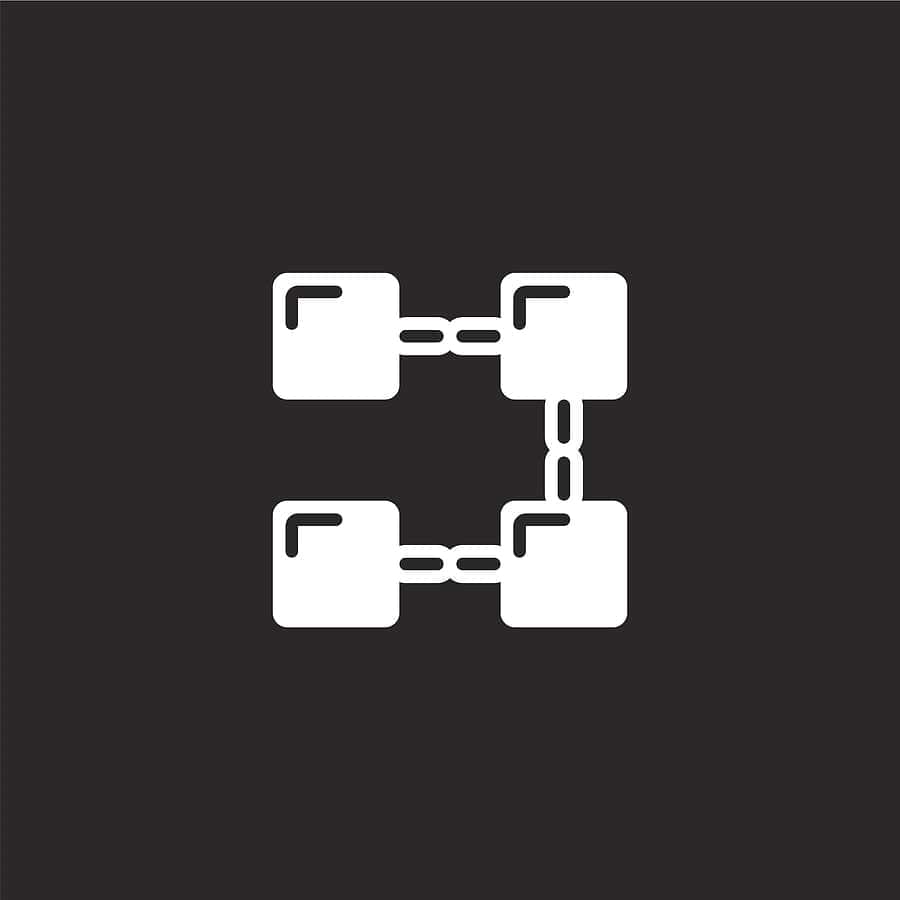Blockchain explorer – what is it and why does it matter?
Table of Contents
ToggleBlockchain or distributed ledger technology (DLT) operates as a peer to peer network, in which individual computers or nodes are protected by cryptography and use various protocols specific to the blockchain to perform transactions. Each transaction forms a block that is connected to the one preceding it, and before a transaction is approved, it is checked by every node in a special validation procedure. These transactions and validations typically result in the creation of a digital asset or token.
Though initially developed as a foundation for cryptocurrency platforms like Bitcoin, Litecoin, and Ethereum, blockchain offers a tremendous level of security, thanks to the independent verification processes that take place throughout the member computers on a blockchain network. For this reason, the technology has been finding applications and use cases that span multiple industries.
In all cases, the use of blockchain involves the performing of transactions and the management of digitized assets that hold some significance or value for participants in the network. Specialist tools are available for viewing and managing these assets. In this article, we’ll be looking at some of the major categories of software and hardware that serve this purpose.
Blockchain Explorer
A blockchain explorer effectively serves as a search engine for data within a blockchain network. In a cryptocurrency environment, tools like Bitcoin Blockchain Explorer or BTC Blockchain Explorer enable users to access different details relating to transactions on specific wallet addresses and blockchains. These may include amounts transacted, the sources and destinations of funds, and the status of various transactions. Using a blockchain explorer, users can access virtually any data related to transactions, wallets, and blockchains, including rich lists and hidden messages.
On a technical level, blockchain explorer software uses an application programming interface (API) and blockchain node to draw various bits of information from a network. The software then uses a database to arrange the extracted data and presents it to the user in a searchable format. The explorer performs searches through an organized table on the database in response to user input.
The basic functions of a blockchain explorer allow users to search and explore data about recently mined blocks or transactions that recently occurred on the blockchain. Some programs provide a screen displaying a live feed of blocks as they are mined, as well as the data relating to each block.
Beyond these features, blockchain explorers also enable users to:
- Explore the transaction history of any wallet address, improving transparency on the blockchain, and enabling users to perform audits.
- Explore transaction receiving addresses and change addresses, which are outputs that return tokens to anyone who spends cryptocurrency, to reduce transaction fees.
- Explore the unconfirmed transactions on a blockchain and their details via Mempool Status.
- Explore orphaned blocks, which are blocks that are not attached to the longest blockchain, even after mining, and whose parent blockchain is unknown.
- Explore stale blocks whose parents are known but which are not attached to the longest known chain.
- Some programs allow users to explore the largest transaction of the day.
- Some blockchain explorers also let users explore how many double-spend transactions are taking place in a blockchain.
Besides Blockchain Explorer, other applications in this field include Blockchair (a search engine for Bitcoin, Ethereum, and Bitcoin Cash blockchains), Tokenview (which provides search facilities for over 20 popular blockchains), and Etherscan (the most popular Ethereum blockchain explorer).
Bitcoin Wallet
Cryptocurrency trading is all about making profitable moves and collecting tokens, and in the Bitcoin ecosystem, a Bitcoin wallet is a software program in which traders can store their Bitcoins. Bitcoin wallets facilitate the sending and receiving of Bitcoins and give the Bitcoin balance ownership to their user.
Bitcoin wallets retain a secret piece of data called a private key or seed, which is used to sign transactions and provides a mathematical proof that the transactions have come from the wallet owner. This signature also prevents the transaction from being altered by anybody else once it has been issued.
There are several types of Bitcoin wallet — some physical, while others take the form of pure software.

Paper Wallets
A paper wallet is an offline mechanism for storing Bitcoins. It’s essentially a document that contains a public address for receiving Bitcoin and a private key, which allows you to spend or transfer Bitcoin stored in that address. Paper wallets often take the form of printed QR-codes to quickly scan them and add the keys to a software wallet to make a transaction.
Once the paper wallet is set up, the website code should be capable of running offline, allowing users to disconnect from the internet before generating the keys. Offline storage makes paper wallets less immune to hacking, but theft or physical damage are still dangers. A sealed plastic bag and storage in a dry safe place can prevent water damage and general wear and tear. Some users laminate their paper wallets and keep them in safe deposit boxes.
Hardware Wallets
Hardware wallets store Bitcoins on a physical piece of equipment with a USB interface. They are practically immune to virus attacks, and very few instances of Bitcoin theft have been reported. However, the devices aren’t free (like other Bitcoin wallet alternatives) and often cost between $100 and $200.
Physical Bitcoin
Though the first physical Bitcoin, Bitbill, was shaped like a credit card, most take the form of a round medal with a tamper-evident seal. They usually come pre-loaded with a fixed amount of BTC and have become valuable collector’s items. Physical Bitcoins can be very useful when trading offline, but the uncertain legal position of cryptocurrency limits the number of outlets that will accept them.
Desktop Wallets
Desktop wallets run as software installed on a desktop computer and provide the user with complete control. The software acts as an address for the user to send and receive Bitcoins, and desktop wallet applications also allow the user to store a private key. Bitcoin Core, MultiBit, Armory, Hive OS X, and Electrum are examples.
Mobile Wallets
For smartphone users, mobile wallets perform the same function as a desktop wallet. The app stores your private keys and enables you to pay for things directly from your phone. Some apps enable users to employ their smartphone’s near-field communication (NFC) feature to give single-touch access to payments.
Mobile wallets use simplified payment verification technology to work with small subsets of the blockchain, relying on trusted nodes within the Bitcoin network to guarantee that they have the correct information. Like most device-based software solutions, they are vulnerable to hacking and physical theft.
Apps are available for iOS and Android. Bitcoin Wallet, FreeWallet, Hive Android, and Mycelium Bitcoin Wallet are examples.
Web Wallets
Web wallets are platforms that store your private keys online and enable you to access funds from any device connected to the internet.
A third party administers the server storing your private keys, and services offer a variety of features, some of which can link to mobile and desktop wallets and replicate your addresses across your various devices. However, there is a danger that the organizations running the website might gain access to your private keys (and with them, your funds) or go out of business, taking your funds with them.
Blockchain Wallet
As we have observed, blockchain technology now extends beyond the cryptocurrency market. However, in civil and business applications, each blockchain transaction still generates information and digital assets that require storage and management. Many of these applications use the Ethereum platform as their basis.
A blockchain wallet is a digital wallet that allows users to store and manage their Bitcoin and Ether. Blockchain wallets allow transfers in cryptocurrencies or digital tokens and the ability to convert them back into a user’s local currency.
Blockchain Wallet the brand is provided by Blockchain, a software company founded by Peter Smith and Nicolas Cary. The platform charges dynamic fees, resulting in transaction fees that can vary based on factors such as transaction size.
Blockchain Info
One of the oldest, most respected sites in the cryptocurrency environment is Blockchain.info (Blockchain Info, or simply Info). This organization was the first to launch both the blockchain wallet and blockchain explorer systems.
Based in Luxembourg, Info routinely ranks in the top 1,000 global websites and is widely known as a dependable block explorer. The company is currently merging all the pages on blockchain.info under a single blockchain.com domain.





